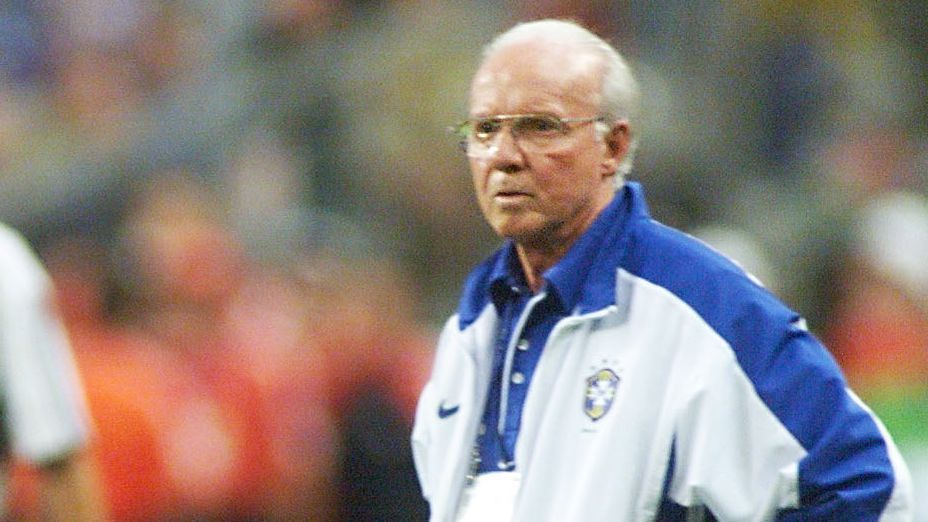“The Enduring Impact of Football on Society in Brazil
Related Articles The Enduring Impact of Football on Society in Brazil
The Enduring Impact of Football on Society in Brazil

Football, or futebol as it’s passionately known, isn’t just a sport in Brazil; it’s deeply woven into the nation’s social, cultural, and political fabric. It’s a unifying force that transcends social classes, ethnicities, and regional divides. More than just a game, football embodies the hopes, dreams, and aspirations of millions of Brazilians, and its impact on the country’s identity is profound and multifaceted.
A National Obsession: Football as a Cultural Icon
From the bustling favelas of Rio de Janeiro to the remote villages in the Amazon, football is a ubiquitous presence in Brazilian life. Children learn to kick a ball almost as soon as they can walk, and impromptu games erupt in streets, parks, and beaches across the country. The sport is a constant topic of conversation, dominating news headlines, radio shows, and social gatherings.
The Brazilian national team, Seleção, is a symbol of national pride and unity. When the team plays, the country comes to a standstill. Streets empty, businesses close, and people gather around televisions to cheer on their heroes. The yellow and green jersey of the Seleção is a potent symbol of Brazilian identity, instantly recognizable around the world.
Football has also profoundly influenced Brazilian art, music, and literature. Samba rhythms, often associated with football celebrations, have become a defining characteristic of Brazilian culture. Artists and writers frequently draw inspiration from the sport, exploring themes of passion, competition, and national identity.
Social Mobility and the Dream of Escaping Poverty
For many young Brazilians, particularly those from impoverished backgrounds, football represents a potential pathway to social mobility. The dream of becoming a professional footballer is a powerful motivator, driving countless young people to dedicate themselves to the sport. Football academies and youth clubs throughout the country serve as training grounds for aspiring players, offering them the opportunity to develop their skills and potentially catch the eye of talent scouts.
While only a small percentage of aspiring footballers ultimately achieve professional success, the pursuit of this dream can provide valuable life skills, such as discipline, teamwork, and perseverance. Moreover, football can offer a sense of community and belonging, providing young people with a positive outlet and keeping them away from crime and drugs.
The success stories of Brazilian football legends like Pelé, Zico, and Ronaldo have become powerful symbols of hope and inspiration. These players, who rose from humble beginnings to achieve global fame and fortune, embody the belief that anything is possible with hard work and dedication.
Football and National Identity: A Source of Pride and Unity
Football plays a crucial role in shaping and reinforcing Brazilian national identity. The success of the Seleção on the international stage has been a source of immense pride and national unity. Winning the FIFA World Cup is seen as a validation of Brazilian identity and a demonstration of the country’s potential.
The passion and flair that characterize Brazilian football are often seen as reflections of the country’s vibrant culture and its people’s joie de vivre. The "jogo bonito" (beautiful game) philosophy, which emphasizes creativity, skill, and artistry, is deeply ingrained in Brazilian footballing culture.
However, football can also be a source of division and conflict. Intense rivalries exist between different clubs, and clashes between fans are not uncommon. Moreover, the commercialization of football has led to concerns about corruption, exploitation, and the erosion of traditional values.
Football and Politics: A Complex Relationship
The relationship between football and politics in Brazil is complex and often fraught with controversy. Politicians have long recognized the power of football to influence public opinion and have often sought to exploit the sport for their own political gain.

During the military dictatorship (1964-1985), the regime used football as a tool to promote national unity and suppress dissent. The Seleção’s victory in the 1970 World Cup was hailed as a triumph for the regime, and football stadiums were used for propaganda events.
In more recent times, politicians have been accused of using football to divert attention from social and economic problems. The construction of expensive stadiums for the 2014 World Cup, for example, was met with widespread protests, as many Brazilians felt that the money could have been better spent on education, healthcare, and infrastructure.
Economic Impact: A Multi-Billion Dollar Industry
Football is a major industry in Brazil, generating billions of dollars in revenue each year. The sport employs millions of people, from players and coaches to stadium workers and marketing professionals.
Brazilian football clubs are major economic entities, generating revenue through ticket sales, merchandise, sponsorships, and television rights. The most successful clubs have a global following and are able to attract significant investment from both domestic and international sources.
The 2014 FIFA World Cup and the 2016 Summer Olympics, both held in Brazil, had a significant impact on the country’s economy. These events generated billions of dollars in revenue and created thousands of jobs. However, they also led to increased public debt and raised concerns about corruption and mismanagement.
Social Issues: Challenges and Opportunities
Despite its positive impacts, football in Brazil also faces a number of social challenges. Racism and discrimination are persistent problems, both on and off the field. Black players have often been subjected to racist abuse from fans, and there is a lack of representation of black people in leadership positions within the sport.
Violence is another major concern, with clashes between rival fans often resulting in injuries and even deaths. The problem of hooliganism is particularly acute in some of the larger cities, where organized groups of fans engage in acts of vandalism and violence.
Exploitation of young players is also a concern. Many aspiring footballers are lured to academies with promises of fame and fortune, but only a small percentage ever make it as professionals. Those who fail to achieve their dreams are often left with few other options and can be vulnerable to exploitation.
However, football also offers opportunities to address social issues. Football clubs and organizations are increasingly involved in community development projects, using the sport as a tool to promote education, health, and social inclusion. Football can also be used to raise awareness about important social issues, such as racism, sexism, and homophobia.
The Future of Football in Brazil: Challenges and Prospects
The future of football in Brazil is uncertain. The sport faces a number of challenges, including increasing competition from other sports, the growing commercialization of the game, and the persistent problems of corruption and violence.
However, Brazilian football also has many strengths. The country has a rich footballing history, a passionate fan base, and a seemingly endless supply of talented players. With proper management and investment, Brazilian football can continue to thrive and remain a source of pride and inspiration for generations to come.
Conclusion: A Powerful Force for Good and Ill
Football’s impact on Brazilian society is undeniable. It is a cultural icon, a source of national identity, a pathway to social mobility, and a major economic force. However, it is also a source of division, conflict, and exploitation.
Ultimately, the impact of football on Brazilian society depends on how it is managed and governed. If the sport is used to promote positive values, such as teamwork, fair play, and social inclusion, it can be a powerful force for good. However, if it is allowed to be corrupted by greed, violence, and discrimination, it can have a detrimental effect on society.
Regardless of the challenges, football will undoubtedly remain a central part of Brazilian life for many years to come. It is a sport that embodies the hopes, dreams, and aspirations of millions of Brazilians, and its enduring legacy will continue to shape the nation’s identity. The beautiful game will continue to be a reflection of the complex and vibrant society that is Brazil.

